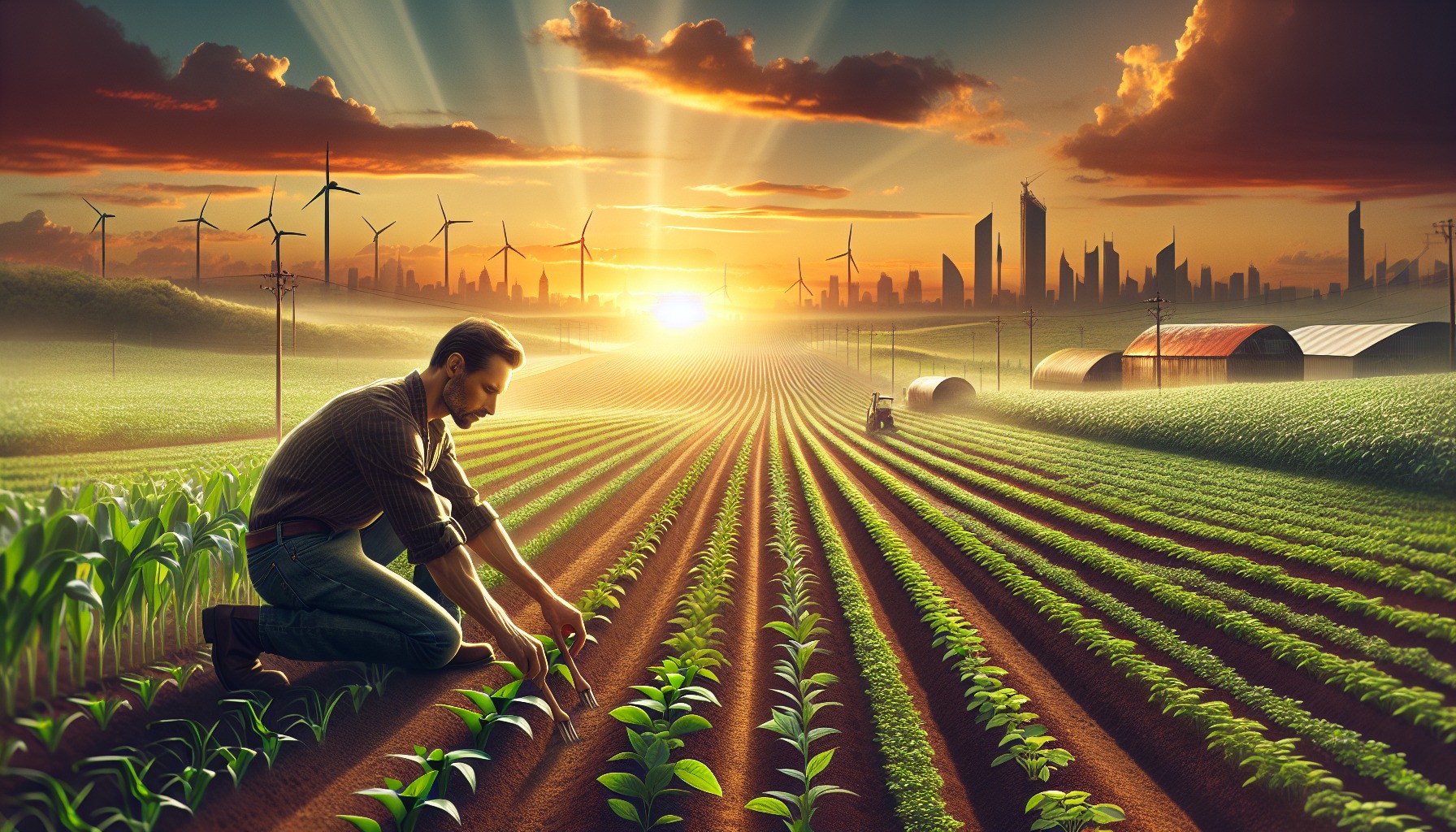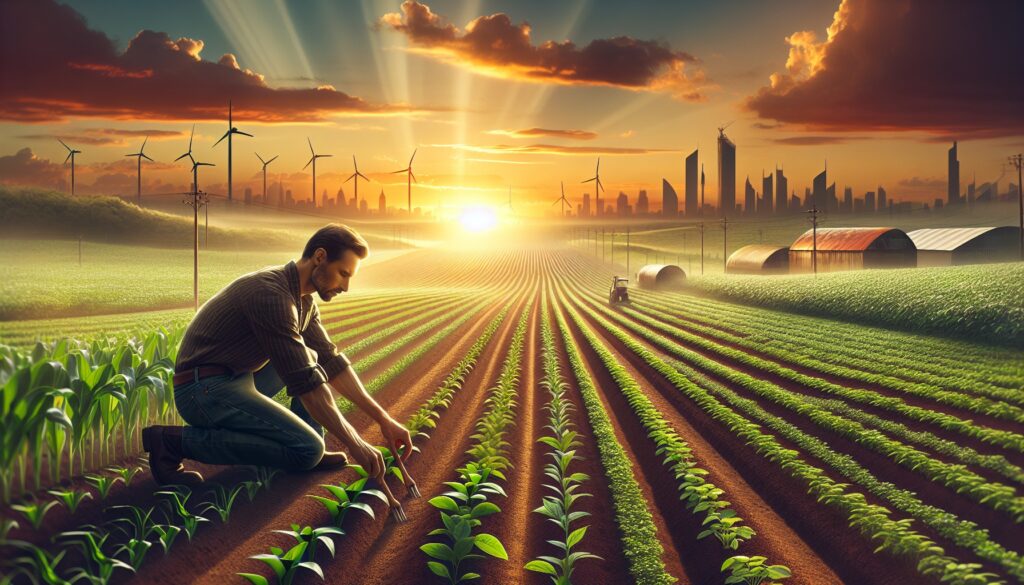Agriculture: The Cornerstone of Civilization
Agriculture has been the bedrock of human civilization for thousands of years. It is the practice that allowed our ancestors to transition from nomadic lifestyles to settled communities, laying the foundation for the development of societies as we know them today. In this blog post, we will explore the multifaceted importance of agriculture, its impact on the global economy, its role in food security, and its influence on environmental sustainability.

The Economic Backbone
Agriculture is a critical component of the global economy. It provides employment to millions of people worldwide, particularly in developing countries where it often constitutes a significant portion of the GDP. The agricultural sector not only includes the cultivation of crops and livestock but also encompasses related industries such as food processing, distribution, and retail. This extensive network supports economic growth by creating jobs and generating income.
Moreover, agriculture is a major contributor to international trade. Many countries rely on agricultural exports as a primary source of revenue. For instance, nations like Brazil, the United States, and China are leading exporters of agricultural products such as soybeans, corn, and wheat. These exports are vital for maintaining trade balances and fostering economic relationships between countries.
Ensuring Food Security
One of the most crucial roles of agriculture is ensuring food security. With the global population projected to reach nearly 10 billion by 2050, the demand for food is expected to increase significantly. Agriculture must adapt to meet this growing demand while also addressing challenges such as climate change, water scarcity, and land degradation.
Innovations in agricultural technology, such as precision farming, genetically modified organisms (GMOs), and sustainable farming practices, are essential for increasing productivity and efficiency. These advancements help farmers produce more food with fewer resources, reducing the environmental impact and ensuring a stable food supply.
Furthermore, agriculture plays a vital role in combating hunger and malnutrition. By improving access to nutritious food, agriculture can help alleviate poverty and improve health outcomes, particularly in vulnerable communities. Initiatives such as community-supported agriculture (CSA) and urban farming are gaining traction as ways to enhance local food systems and promote food sovereignty.
Environmental Stewardship
Agriculture is intrinsically linked to the environment. It relies on natural resources such as soil, water, and biodiversity, making sustainable practices essential for preserving these resources for future generations. Sustainable agriculture aims to balance the need for food production with environmental conservation, ensuring that farming practices do not deplete or degrade the natural ecosystem.
One approach to sustainable agriculture is agroecology, which integrates ecological principles into farming systems. This method emphasizes biodiversity, soil health, and water management, promoting practices such as crop rotation, cover cropping, and organic farming. By enhancing the resilience of agricultural systems, agroecology can help mitigate the impacts of climate change and reduce greenhouse gas emissions.
Additionally, agriculture can play a role in carbon sequestration, the process of capturing and storing atmospheric carbon dioxide. Practices such as reforestation, agroforestry, and conservation tillage can help sequester carbon in soil and vegetation, contributing to climate change mitigation efforts.
Cultural and Social Significance
Beyond its economic and environmental contributions, agriculture holds significant cultural and social value. It is deeply intertwined with the traditions and identities of communities around the world. Agricultural practices and food production are often central to cultural rituals, festivals, and cuisines, reflecting the diversity and heritage of different societies.
In many rural areas, agriculture is not just a means of livelihood but a way of life. It fosters a sense of community and connection to the land, promoting social cohesion and resilience. By supporting local farmers and preserving traditional farming practices, we can maintain cultural diversity and strengthen rural communities.
Conclusion
In conclusion, agriculture is a cornerstone of human civilization, underpinning economic development, food security, environmental sustainability, and cultural heritage. As we face the challenges of the 21st century, it is imperative to recognize the importance of agriculture and invest in sustainable practices that ensure its continued viability. By doing so, we can create a more equitable and resilient world for future generations.



